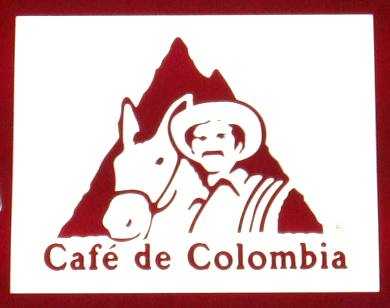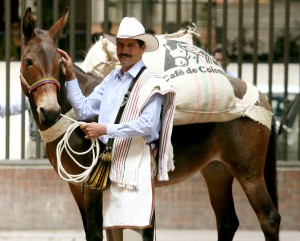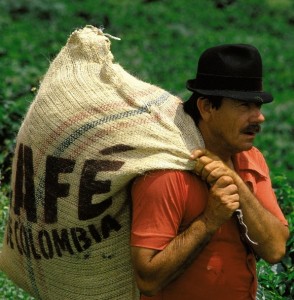BOGOTA, COLOMBIA – The Colombian Coffee Growers Federation ( FNC ) is taking major steps in measuring the carbon footprint of Colombian coffees from a product cycle perspective.
As a leader in research in coffee and its environmental impact, the organization is the first in the country to receive official certification for the measurement and management of greenhouse gases in the value chain of an agricultural product by the Colombian Institute for Technical Standards and Certification (ICONTEC), the highest national authority in the field of standardization, and also has the accreditation to perform certification processes in different areas including those related to climate change.
Additionally, the FNC is the first to sell carbon offsets as a result of its environmental restoration in areas of ecological significance, efforts to benefit small coffee producers that are involved in its environmental conservation efforts.
The FNC’s certification was based on the methods established in a pilot program in the municipality of La Union, Nariño. The project, which followed the production of 300,000 kilos of coffee, was led by the FNC’s National Coffee Research Center (Cenicafe), but required the participation of all actors of the value chain.
“This certification has special meaning not only domestically but internationally,” said Maria Z. Velez, director of ICONTEC. “This is one of the first exercises of its kind carried out in Colombia, covering all stages of the value chain of an agricultural product.”
Besides certification, the project also:
- Established an official methodology for calculating the footprint of the agro coffee chain
- Identifies opportunities for each stage of the value chain to contribute to emission reduction
- Created a single language regarding the measurement and management of carbon footprint, which facilitates understanding between the organization and various stakeholders
- Identifies differentiators that add value to coffee products (goods and services)
The FNC has also announced another first for Colombia: the sale of environmental services from small coffee farmers involved in its environmental programs. By selling carbon capture certificates of 6.725 tons to a domestic roaster, the resulting income will directly benefit 381 coffee farmers and continue creating positive incentives for them to continue providing environmental services.
The sale was an added benefit of the FNC -led “Mainstreaming Biodiversity in the Coffee Sector in Colombia” project, which began in 2010 in cooperation with the UNDP and the World Bank’s Global Environmental Facility and other local actors.
The program has allowed coffee farmers to participate in the restoration of the biodiversity in 16 municipalities through the development of conservation corridors through the planting of native trees, protecting water sheds and the reduction of pollution generated by post-harvest processes.
Besides the sale of carbon-offset certificates, the program has also resulted in the education of thousands of farmers about biodiversity and promoted cooperation between organizations throughout the country. To date, 17, 212 producers, technicians and industry leaders have been trained and encouraged to use methods that restore biodiversity.
“Thanks to our long term efforts, local presence and scientific knowledge we are in a position to develop these very significant programs,” said Luis Munoz, FNC’s CEO. “Nowadays Colombian coffee producers not only produce high quality coffee, they provide significant services that are not compensated with the current economic model.
We are committed to make this change possible and what we have accomplished this year is a significant step in this direction.”

















